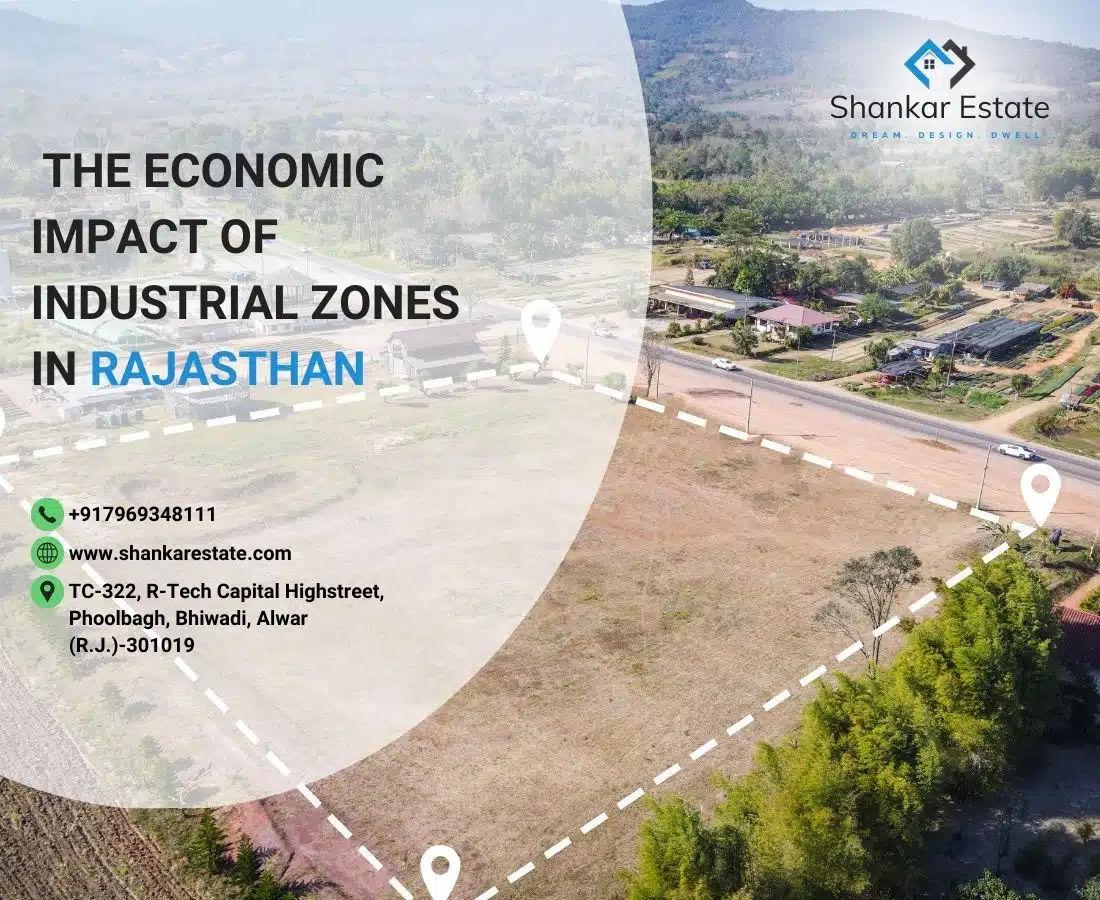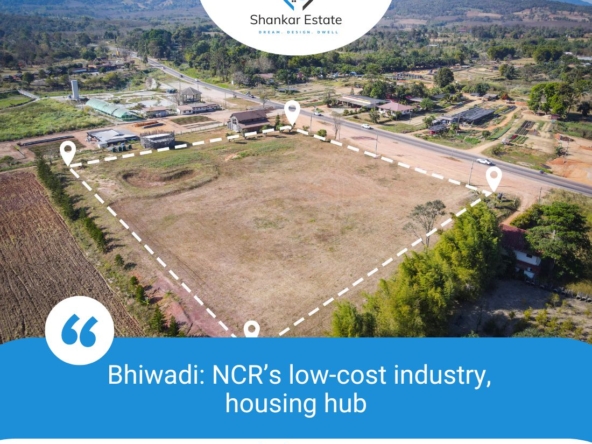Introduction
Industrial Zones in Rajasthan, famous for its history and culture, is becoming important for industries too. Building industrial areas, especially in places like Bhiwadi, is a big step in this change. This study looks at how these industrial areas affect the economy of Rajasthan and the people who live there.
Boosting the Local Economy
The establishment of industrial zones across Rajasthan has breathed new life into local economies. Towns such as Bhiwadi have undergone a remarkable transformation, with the emergence of manufacturing plants and other industrial facilities creating abundant employment opportunities. This surge in employment plays a crucial role in alleviating local unemployment rates, thereby elevating the overall economic well-being of the region. Industries like automotive, steel processing, and textiles have flourished, capitalizing on the structured industrial environments provided by these zones.
Attracting Foreign Investment
Rajasthan’s industrial zones have become magnets for foreign investment, thanks to favorable government policies and strategic geographic positioning near major markets like Delhi. The state’s industrial policies have been carefully crafted to attract a diverse range of international stakeholders, resulting in significant inflows of foreign direct investment into the region. This infusion of global capital not only stimulates economic activity but also integrates international best practices in production and sustainability.
Developing Industrial Zones in Rajasthan
The expansion of these industrial zones goes hand in hand with the development of essential infrastructure. Improved transportation networks, reliable power supplies, and robust communication systems have all followed the establishment of these zones. This enhancement of infrastructure not only supports industrial activities but also enhances the quality of life for local residents. Furthermore, it encourages further industrial investment, creating a cycle of economic growth.
Environmental and Social Impacts
The growth of industrial zones brings with it significant environmental considerations. Rajasthan has taken proactive measures to mitigate these impacts by adopting green technologies and enforcing stringent environmental regulations. Additionally, Industrial Zones in Rajasthan corporate engagement with local communities through various Corporate Social Responsibility (CSR) initiatives has led to improvements in education, health, and social welfare programs, fostering community development alongside industrial growth.
Government Policies and Incentives
The Government of Rajasthan has implemented several policies aimed at creating a conducive business environment within these industrial zones. These policies include tax exemptions, investment subsidies, and streamlined regulatory processes. Such incentives are designed to reduce entry barriers for new businesses and encourage existing businesses to expand, further accelerating the state’s industrial development.
Collaborative Networks
Industrial zones in Rajasthan also foster collaboration between businesses. The close proximity of diverse industries encourages the sharing of best practices, technology transfer, and the establishment of supply chains. This collaborative ecosystem helps businesses respond quickly to market demands, reducing costs, and accelerating innovation. The result is a more resilient industrial sector that can adapt to changing global trends.
Case Studies and Success Stories
Numerous businesses that partnered with Shankar Estate to establish operations in Bhiwadi have achieved remarkable success. These case studies illustrate the strategic advantages of locating in Rajasthan’s industrial zones, ranging from significant cost savings to improved logistical capabilities. Shankar Estate, with its extensive local expertise and comprehensive consultancy services, continues to play a pivotal role in these success stories, highlighting the potential for profitable industrial ventures in the region.
Looking Forward
As Rajasthan continues to enhance its industrial capabilities, the role of industrial zones as economic drivers becomes increasingly vital. With ongoing improvements in infrastructure, a steady influx of investments, and a strong emphasis on sustainable development, these zones are poised to propel the state into a new era of industrial prosperity.
Conclusion
The industrial zones of Rajasthan are not just centers of commerce; they are the engines driving economic transformation and are essential to the state’s developmental goals. For investors and businesses alike, Bhiwadi and similar areas offer fertile ground for growth, supported by robust infrastructure and proactive governmental assistance. Looking ahead, the potential for these zones to further enrich Rajasthan’s economic landscape is vast.




